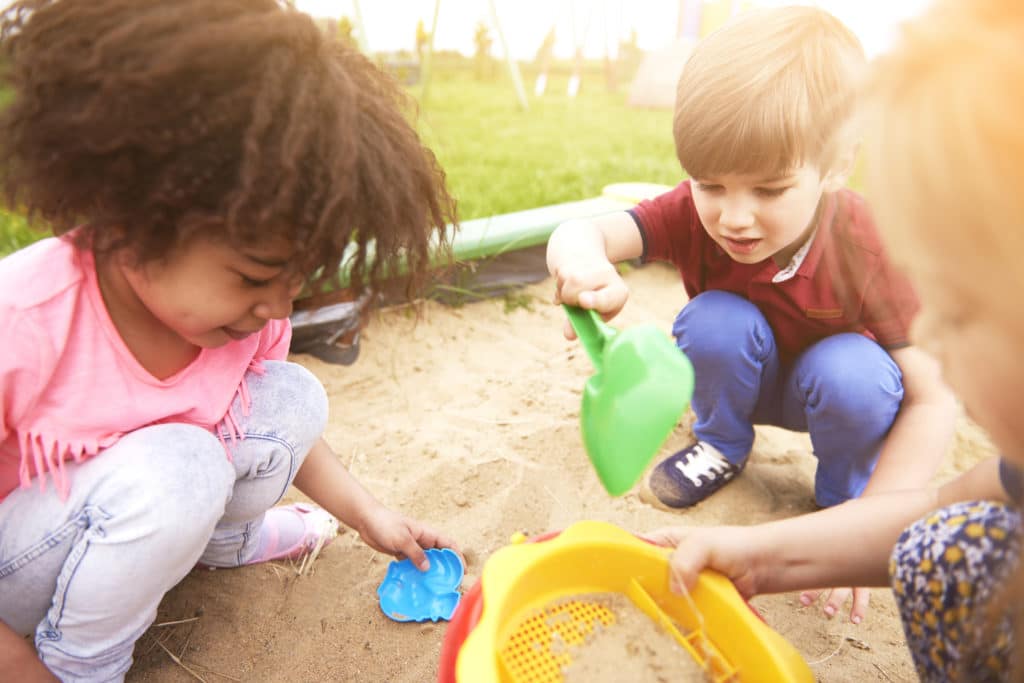Our Philadelphia and Main Line pediatricians provide some helpful information about unstructured play and its role in children’s development.

In a society where families tend to focus on giving children the best opportunities for success, they often mistakenly schedule and guide a child’s day from beginning to end. They fill children’s days with activities that they think are important to achieving that goal. Very often, play is included in that list of important activities. Too often, however, it comes in the form of structured play.
Structured play is any play that is influenced or directed by someone other than the child. It has pre-existing objectives and rules and may have a beginning and an end. While this is important to a child’s overall development, it frequently overshadows the other type of play that is just as crucial to healthy outcomes for children: unstructured play.
What is Unstructured Play?
- It is orchestrated by the child without help from anyone, unless that help is solicited by the child.
- It is personal to the child.
- It is imaginative and self-directed.
- It should be a source of joy for the child.
- It allows the child to create his or her own reward.
- It is open ended.
- It offers endless possibilities
- It can be alone or with a group.
- It is not “rules oriented.”
- It offers an opportunity for the child to establish his or her own objectives.
What are the Benefits of Unstructured Play?
- It helps children gain healthy emotional development, by allowing them to express both their conscious and unconscious experiences.
- It helps children develop their sense of self-exploration and discovery.
- It can be used to communicate feeling.
- It aids and benefits social interaction.
- It helps with problem solving.
- It helps with unassisted decision making.
- It promotes flexibility.
- It promotes self-regulation.
- It promotes tolerance for differences in opinions.
- It improves communication.
- It helps children develop emotional, physical and cognitive skills.
- It builds confidence and self-esteem.
- It allows children the freedom to expand their own interests.
- It helps children discover what they enjoy.
- It stretches the child’s mind.
- It provides an environment where creativity, imagination and self-expression can take over.
- It provides an environment where children can cooperate and elicit help to achieve their goals.
Unstructured play is as important as structured play for providing a rich experience for children. Thus, parents should seek to expose their children to both.
 33 Rock Hill Rd
33 Rock Hill Rd 1740 South Street
1740 South Street 2365 East York Street
2365 East York Street